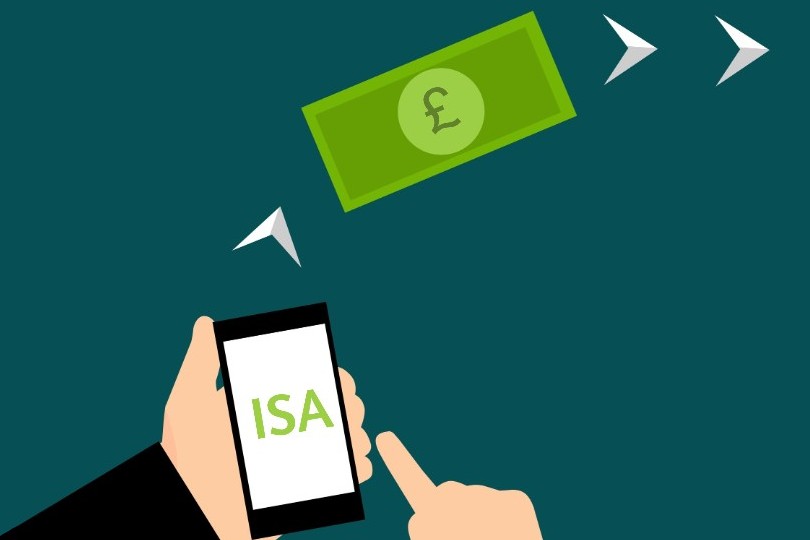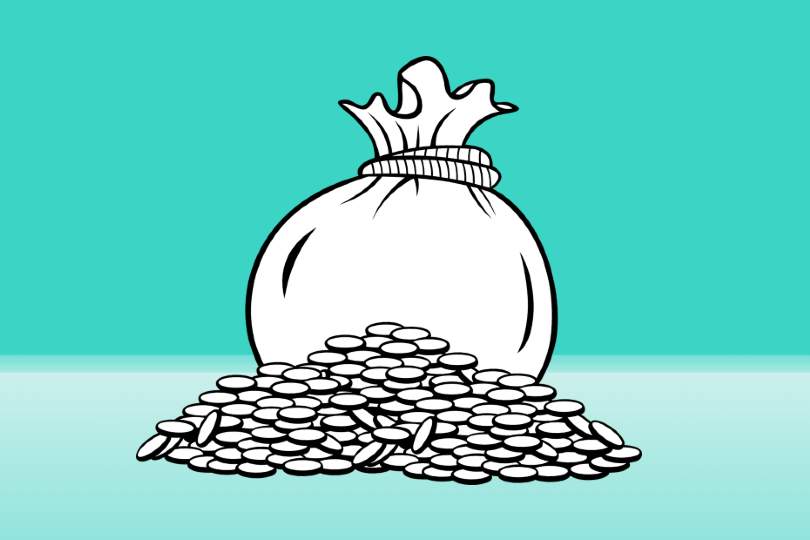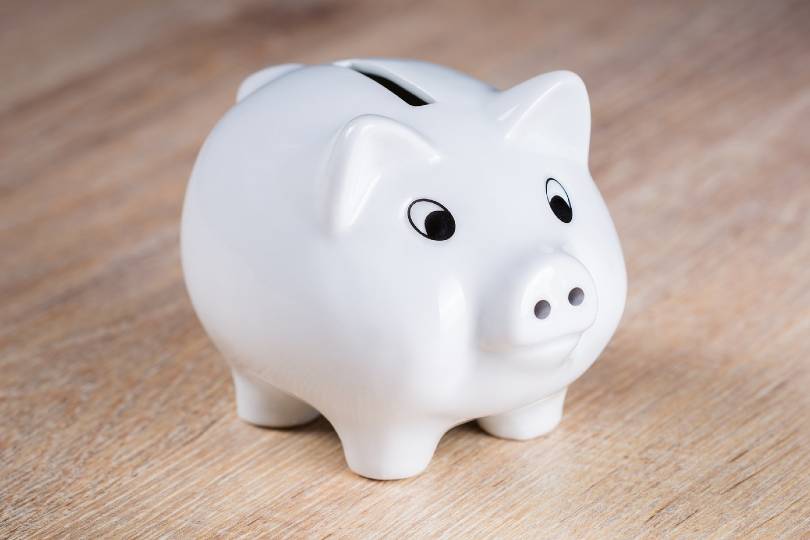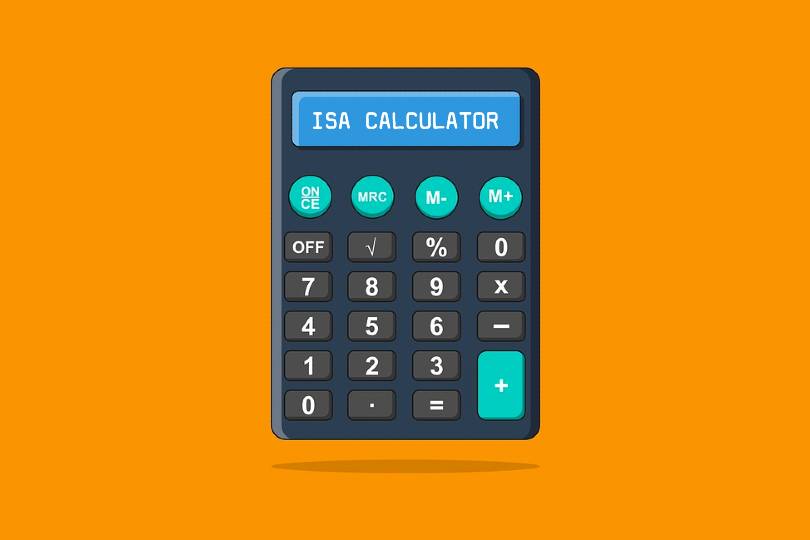What is an ISA?
ISA stands for “individual savings account” and is a type of account used by people across the country as a means of investing or saving.
They are a kind of tax-efficient savings and/or investment account. There are multiple different types available, each designed to help you save or invest money towards your financial goals.
My key takeaways
- ISAs are a type of tax-efficient savings and investment account introduced by the British government in 1999.
- There are different types of ISAs that can be used for different purposes, including investing in stocks and shares or even buying your first home.
- There is an annual allowance that limits how much you can contribute to your ISA accounts each year.
Trusted partner

Capital at risk. T&Cs apply.
Most economical ETFs
- User friendly app
- Excellent customer service
- 0.25% for managed portfolios
How do ISAs work?
ISAs were introduced in 1999 as a replacement for the Personal Equity Plan (Peps) and Tax-Exempt Special Savings Account (TESSA). Their introduction sought to encourage people, via tax relief, to engage in long-term savings.
ISAs are considered to be “tax-efficient” as any interest paid into your Cash ISA is free from Income Tax. Meanwhile, there is no Capital Gains Tax (CGT) charged on any returns generated in an investment ISA.
Mitigating these benefits is the ISA allowance, which limits the amount you can contribute across all your ISAs each tax year.
ISAs also cannot be considered to be fully “tax-free” as the value in them would count towards your estate, and so could be liable for Inheritance Tax (IHT).
There are different kinds of ISAs that are designed to be used in various personal circumstances, from saving or investing your money, to loaning it, to buying your first property.
ISA providers are typically banks and building societies, although many investment platforms or stockbrokers also offer them.
You add money to your account each year, or as often as you’d like – as long as the total of your ISA contributions made in the same tax year is within the annual ISA allowance. This is currently £20,000 in the 2023/24 tax year.
Depending on the type of ISA account you use, your funds will either start to earn interest at the rate you agreed upon with the ISA provider, or you must wait for your investment to move.
ISAs are often viewed as savings accounts which is true for the most part. However, some types of ISAs are explicitly investment accounts – this means you could potentially lose value stored in some types of ISA if it is invested in the stock market.
While the funds in a Cash ISA may lose purchasing power as a result of inflation, it’s unlikely you’ll lose money.
However, with Stocks and Shares ISAs, Lifetime ISAs (LISAs), and Innovative Finance ISAs, it’s entirely possible that you could lose some, if not all, of the funds in your account if it is invested.
Remember that past performance is not a reliable indicator of future performance, and any type of investment you make carries inherent risk.
What type of ISAs are there?
ISAs are flexible savings products in the sense that there are different types of accounts for different goals.
The various types of ISA accounts include:
- Cash ISA
- Stocks and Shares ISA
- Lifetime ISA
- Innovative Finance ISA
- Junior ISA
Any UK adult can open the main types of ISAs such as Cash ISAs, Stocks and Shares ISAs, and Innovative Finance ISAs.
However, there are specific criteria for who can open LISAs and JISAs.
Cash ISA
Cash ISAs are used to hold and build cash savings by earning interest on the funds in the account. Since your money grows at a given interest rate, this type of ISA works in a similar way to a normal savings account.
To open a Cash ISA you must:
- Be aged 16 or over
- Reside in the UK.
If you don’t reside in the UK, you must be a Crown servant or their spouse or civil partner.
Stocks and Shares ISA
The Stocks and Shares ISA is an investment-oriented account intended for holding investments in stocks and shares, funds, bonds, and many other investments.
To open a Stocks and Shares ISA you must be:
- Aged 18 or over
- Reside in the UK.
If you don’t reside in the UK, you must:
- Be a Crown servant or their spouse or civil partner.
Lifetime ISA (LISA)
LISAs are a type of account that must specifically be used to build funds to buy your first home or for retirement. There are both Cash and Stocks and Shares LISAs available.
To open a LISA you must:
- Be aged between 18 and 40
- Reside in the UK.
If you don’t reside in the UK, you must:
- Be a Crown servant or their spouse or civil partner.
Once you turn 50, you can no longer contribute to your LISA or receive the 25% government bonus. Despite this, your savings or investments will continue to earn interest or potential returns.
Withdrawing from a LISA
There are also specific rules stipulating how money can be withdrawn from a LISA.
You are permitted to withdraw from your LISA if you are:
- Buying your first home
- Aged 60 or over
- Terminally ill, with 12 months to live.
Any withdrawals that do not follow the stipulated conditions will be charged a 25% fee in order to recover the government’s contributions. These are known as “unauthorised withdrawals”.
Innovative Finance ISA
Introduced in 2016, the Innovative Finance ISA uses a system of peer-to-peer loans in order to earn interest on your money by lending it to other parties. These may be individuals, small businesses, or anything in between.
In order to open an Innovative Finance ISA you must be:
- Aged 18 or over
- Resident in the UK.
There are some additional criteria as to who can open an Innovative Finance ISA. Check with your provider before you open an account.
Junior ISA
Junior ISAs (JISAs) can be opened by a parent or legal parental guardian on behalf of a child up to the age of 16 to start building their savings as early as possible. You can choose between a Cash Junior ISA and a Stocks and Shares Junior ISA.
To open a Junior ISA your child must:
- Be aged under 18
- Live in the UK.
There is a separate JISA allowance, which is currently £9,000.
Your child can take control of the account from age 16, and can start making withdrawals once they turn 18.
What’s the ISA allowance?
The ISA allowance limits how much you can save and invest each tax year in a tax-efficient way. In the current tax year, this is £20,000, and counts across all ISAs you hold.
ISAs which contribute to your allowance include:
- Cash ISAs
- Stocks and Shares ISAs (or “investment ISAs”)
- Lifetime ISAs
- Innovative Finance ISAs.
Junior ISAs (JISAs), which are tax-efficient accounts for children below the age of 18, have a separate JISA allowance. In 2022/23, this is £9,000.
Similarly, there is a limit to how many ISAs you can open in a single tax year – you are only permitted to open a maximum of one account of each type throughout the same tax year.
This would mean, for example, that you can open one Cash ISA each tax year.
The Lifetime ISA allowance
Lifetime ISAs (LISAs) do follow slightly different contribution rules.
You are permitted to contribute a maximum of £4,000 each tax year to a LISA, which counts towards your overall ISA allowance. You will also receive a government bonus totalling 25% of your annual contribution.
So, for every £100 you contribute, you will receive a government bonus of £25.
This means, by contributing the maximum allowance, you could receive up to £1,000 as a government bonus each tax year.
There are specific rules around who can open a LISA and what the money can be used for. Find out more below.
How much tax do you save with ISAs?
ISAs are commonly referred to as “tax wrappers” since you don’t have to pay tax on any returns or interest earned from an ISA.
This is relevant to Income Tax as well as Capital Gains Tax and is true for all types of ISA accounts.
It’s also worth noting that income earned through an ISA does not contribute toward your Personal Savings Allowance.
If you’re keen to find a tax-efficient method of saving or investing, you may consider using an ISA product over other savings accounts.
Is an ISA better than a savings account?
One of the main benefits that differentiate ISAs from regular savings accounts is the tax-free interest you could earn.
Because you avoid paying tax on the interest or gains made in your account, this could lead people to form the opinion that ISAs are better.
However, saving on tax may not be everyone’s priority and there are savings accounts that may suit you better for reasons besides their tax-free status.
For example, an ordinary savings account could be of more use to you if you wish to make regular deposits or withdrawals to and from your account – although variable-rate Cash ISAs may also allow this.
On the other hand, you may wish to open an investment ISA, like a Stocks and Shares ISA, to potentially avoid paying Capital Gains Tax on any gains made on your investments.
As such, discerning which account is better or worse will likely be the result of your own preferences.
If you are unsure about what type of savings account to open, it could help to seek independent advice.
ISA Frequently asked questions
Can I withdraw money from ISAS?
Are ISAs safe?
What is the total annual allowance for ISAs?
Does my credit rating affect my eligibility?
How many ISAs can I have at once?
Can I inherit an ISA?
What is a flexible ISA?
Please note:
The value of your investment can go down as well as up and you may not get back the full amount you invested. Past performance is not a reliable indicator of future performance.
This blog is for general information only and does not constitute advice. The information is aimed at retail clients only. All contents are based on our understanding of HMRC legislation, which is subject to change.
















